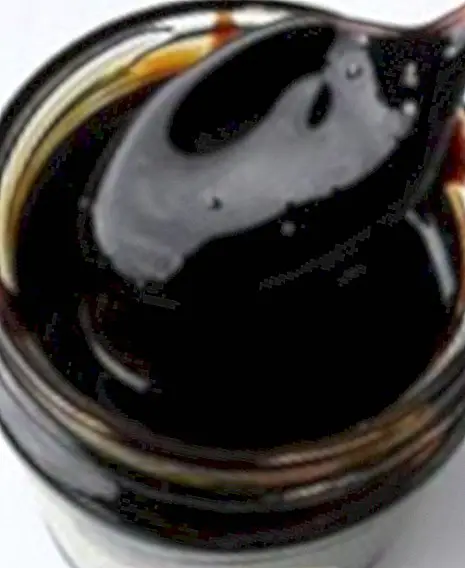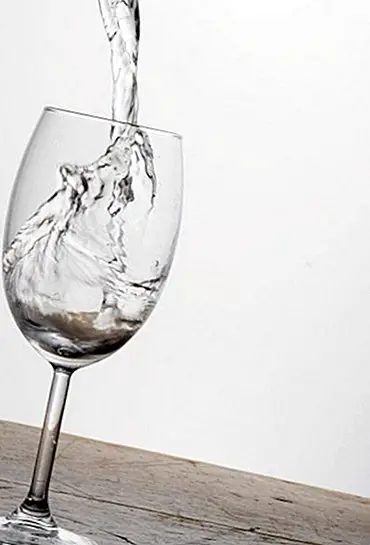The best foods, vitamins and minerals to relax
It is increasingly clear that eating can influence our mood. In fact, there is a wide variety of scientific studies that, at some time or another, have found that depending on the lifestyle and diet that we follow, we tend to feel more or less happy.
Food nourishes us and provide us with certain nutrients, compounds and substances that act directly on our nervous system. As a consequence, depending on the effect they have, they can help to activate us, to improve our state of concentration, to maintain a higher level of alertness, or even to relax.
A good example is coffee, and particularly drinks and foods with caffeine. You probably know that caffeine is a substance with exciting capacity, especially useful when we need to wake up and stay more active, as it acts on the nervous system stimulating and exciting it.

On the contrary, there are also foods that can help us feel much better, improve our mood and act as wonderful relaxers. It is the case of the foods that we propose to you.
The 7 best foods that help you relax
There are certain foods that affect the adrenal glands, by stimulating them and forcing them to produce cortisol, adrenaline and noradrenaline; As we have already seen, three hormones that our body segregates in stressful situations.
Among precisely the different foods that may be able to produce stress we find coffee, alcohol, sugar or chocolate, as well as the consumption of excess carbohydrates.
But there are also foods that, as we have indicated, help reduce stress levels in our body, avoiding the stimulation of the adrenal glands.
Take good note, the idea is to take these certain foods when you feel that you are stressed or nervous; they will help you to recover psychic health and inner peace:
- Lettuce:Helps to calm the nerves, to control the palpitations and to that our organism manages to relax.
- Wheat germ:It has a very diverse amount of vitamins of group B, which, as we know, are necessary for a correct balance of the nervous system.
- Banana:It is a fruit necessary for the proper functioning of the nervous system, being rich in magnesium. It is essential to overcome anxiety and resist stress.
- Garlic:Although it is not entirely clear, several studies indicate that garlic can help fight both depression and stress, by slightly increasing the level of serotonin in the brain.
- Almonds:They improve blood circulation while helping in the prevention of heart disease.
- Avocado:It contains essential fatty acids, phospholipids and vitamin B6 essential for neurons, helping to protect cells from stress damage.
- Yogurt:Yogurt is a wonderful natural food, full of beneficial bacteria for our health. It also contains vitamin D and calcium.

3 vitamins that relax
There is no doubt that eating in a balanced way is practically fundamental to keep our body and our own mind in order, avoiding that, for example, stress or anxiety can affect our stomach, our nervous system and our defenses.
Not in vain, we already know the relaxation that exists between food and stress, at the same time that we can also find good foods to relax.
Mainly, because they have sedative virtues, which together with the mere fact of feeling pleasure when we eat, the properties are even greater and much better. And is that in addition to certain foods, did you know that specifically there are certain vitamins with relaxing action ?:
- Group B vitamins:As we have seen in some post, these vitamins are essential for the proper functioning and development of the nervous system. We find them in foods such as whole wheat and rice, soy, oats, nuts, lentils, seaweed (nori) and brewer's yeast.
- Vitamin C:When we are in situations of stress, to produce the aforementioned adrenaline large amounts of vitamin C are generated, so we will need, therefore, to increase the consumption of foods rich in this vitamin. We find it in foods such as orange, kiwi, tangerine, blackberries, blueberries, cauliflower, algae (dulse), and red and green peppers.
- Vitamin A:Vitamin A highlights many functions, among which are to maintain the walls of nerve cells in good condition, and help reduce the wear that occurs in mucous membranes during stress or stress. We find it in: eggs, meat, milk, cod liver oil, cabbage, melon, carrot, seaweed, and cheese.

Minerals that help relax the nervous system
There are also certain minerals with relaxing action, which is very useful when it comes to relaxing our nervous system. We discover which are the most interesting and appropriate:
- Magnesium:It forms mainly part of different and diverse nerve cells, so, its consumption, is certainly essential for the proper functioning of the nervous system. Deficit of this mineral in situations and states of stress, will contribute to increase it, reason why it is very advisable to avoid its lack. We find it in almonds, walnuts, hazelnuts, beans, ginger, whole grains and wheat flour.
- Potassium:It is a mineral whose reserves are considerably consumed by chronic stress, even causing depression, nervousness and insomnia, when its lack is high. We found potassium in high quantities in banana, beet, avocado, broccoli, cauliflower, cherry, plum, apricot and peach.
- Zinc:When we are faced with situations that generate stress, this affects negatively the absorption of zinc, which produces a decrease and that it is consumed more quickly by our body. Like potassium, low levels of zinc can cause depression, irritability and depression. We find zinc in chicken, turkey, rye, oysters, corn, milk, nuts, almonds and chickpeas.
As we see, there is nothing better than following a healthy lifestyle, based on a balanced and varied diet, rich in fresh, healthy and natural foods, as the best way to ensure an adequate and correct intake of nutrients ideal not only for our nervous system, but for our health in general. This article is published for informational purposes only. You can not and should not replace the consultation with a Nutritionist. We advise you to consult your trusted Nutritionist. ThemesMinerals Vitamins


